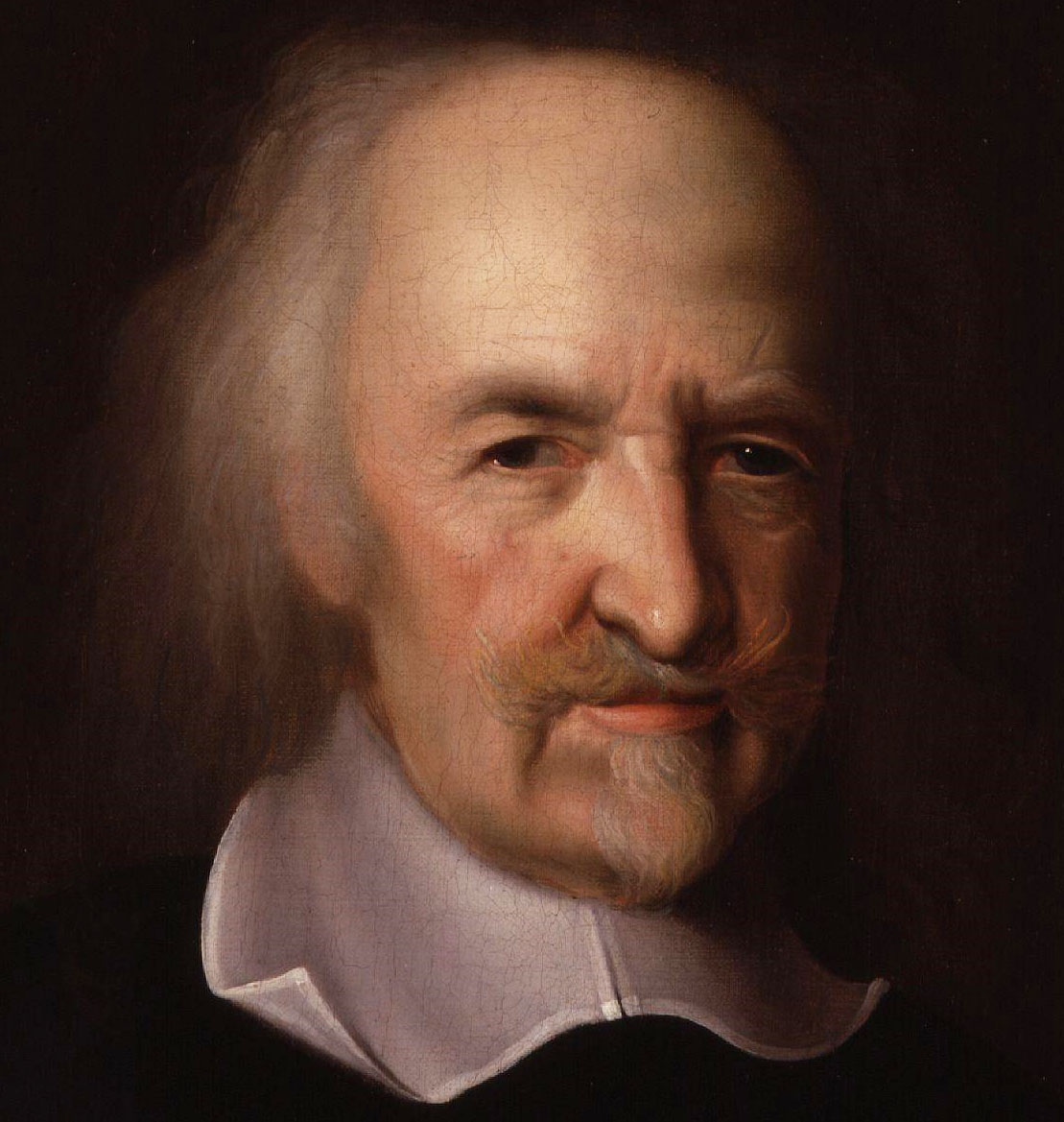This post was originally published at The Scholar’s Stage on 2 May 2015. It has been re-posted here without alteration.
If mankind is, as has been claimed since ancient days, a species driven by the narrow passions of self interest, what holds human society together as one cohesive whole? How can a community of egoists, each devoted to nothing but his or her own ambition, thrive? Or for that matter, long exist?
Thomas Hobbes of Malmesbury thought he knew the answer.
Hobbes is famous for his dismal view of human nature. But contrary to the way he is often portrayed, Hobbes did not think man was an inherently evil being, defiled by sin or defined by vileness ingrained in his nature. He preferred instead to dispense with all ideas of good and evil altogether, claiming “these words of good, evil, and contemptible, are ever used with relation to the person that useth them, there being nothing simply and absolutely so; nor any common rule of good and evil, to be taken from the nature of the objects themselves; but from the person of the man.” [1] Only a superior power, “an arbitrator of judge, whom men disagreeing shall by consent set up” might have the coercive force to make one meaning of right the meaning used by all. Absent such a “common power”, the world is left in a condition that Hobbes famously described as “war of every man against every man” where they can be no right, no law, no justice, and “no propriety, no dominion, no ‘mine’ and ‘thine’ distinct, but only that to be every man’s that he can get, and for so long as he can keep it.” [2]
This description of the wretched State of Nature is familiar to most who have studied in the human sciences at any length. Also well known is Hobbes’s solution to the challenge posed by anarchy:
[Those in this state will] appoint one man, or assembly of men, to bear their person; and every one to own and acknowledge himself to be author of whatsoever he that so beareth their person shall act, or cause to be acted, in those things which concern the common peace and safety; and therein to submit their wills, every one to his will, and their judgements to his judgement. This is more than consent, or concord; it is a real unity of them all in one and the same person, made by covenant of every man with every man, in such manner as if every man should say to every man: I authorise and give up my right of governing myself to this man, or to this assembly of men, on this condition; that thou give up, thy right to him, and authorise all his actions in like manner. This done, the multitude so united in one person is called a COMMONWEALTH; in Latin, CIVITAS. [3]
What is most striking in Hobbes’ vision of this State of Nature and the path by which humanity escapes it is his complete dismissal of any form of cooperation before sovereign authority is established. Neither love nor religious zeal holds sway in the world Hobbes describes, and he has no more use for ties of blood or oaths of brotherhood than he does for the words right and wrong. He does concede that if faced with large enough of an outside threat fear may drive many “small families” to band together in one body for defense. However, the solidarity created by an attack or invasion is ephemeral–once the threat fades away so will the peace. “When there is no common enemy, they make war upon each other for their particular interests” just as before. [4] Hobbes allows for either a society dominated by a sovereign state or for a loose collection of isolated individuals pursuing private aims.
Hobbes’ dichotomy is not presented merely as a thought experiment, but as a description of how human society actually works. Herein lies Hobbes’ greatest fault. Today we know a great deal about the inner workings of non-state societies, and they are not as Hobbes described them. The man without a state is not a man without a place; he is almost always part of a village, a tribe, a band, or a large extended family. He has friends, compatriots, and fellows that he trusts and is willing to sacrifice for. His behavior is constrained by the customs and mores of his community; he shares with this community ideas of right and wrong and is often bound quite strictly by the oaths he makes. He does cooperate with others. When he and his fellows have been mobilized in great enough numbers their strength has often shattered the more civilized societies arrayed before them.
The social contract of Hobbes’ imagination was premised on a flawed State of Nature. The truth is that there never has been a time when men and women lived without ties of kin and community to guide their deeds and restrain their excess, and thus there never could be a time when atomized individuals gathered together to surrender their liberty to a sovereign power. Hobbes mistake is understandable; both he and the social contract theorists that followed in his footsteps (as well as the Chinese philosophers who proposed something close to a state of nature several thousand years earlier) lived in an age where Leviathan was not only ascendent but long established. They were centuries removed from societies that thrived and conquered without a state. [5]
To answer the riddle of how individuals “continually in competition for honour and dignity” could form cohesive communities without a “a visible power to keep them in awe, and tie them by fear of punishment to the performance of their covenants,” [6] or why such communities might eventually create a “common power” nonetheless, we must turn to those observers of mankind more familiar with lives spent outside the confines of the state. Many worthies have attempted to address this question since Hobbes’ say, but there is only one observer of human affairs who can claim to have solved the matter before Hobbes ever put pen to paper. Centuries before Hobbes’s birth he scribbled away, explaining to all who would hear that there was one aspect of humanity that explained not only how barbarians could live proudly without commonwealth and the origin of the kingly authority that ruled civilized climes, but also the rise and fall of peoples, kingdoms, and entire civilizations across the entirety of human history. He would call this asabiyah.
Read more

